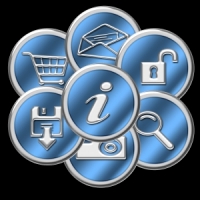The Future of the Internet (of Things)

The Internet has changed dramatically in the past twenty years; we laugh at how primitive everything was just a few years ago. This video from the Today show in 1994 demonstrates just how quickly the Internet went from the fringe of society to being an integral part of our lives.
In another twenty years our current Internet will seem just as archaic as 1994 does today, and we might very well look back at 2014 as the seminal year when everything changed. Right now we mostly interact with the Internet over a browser in which we initiate all activity. This paradigm requires us to know what we want before we get started.
The new Internet will leverage wearable computers, anticipatory computing, and user context to deliver data when and where you need it—before you even know you want it. Obviously, this is a dramatic change, and the idea of a ubiquitous Internet can be intimidating.
The threats to our privacy alone scare most people away from even considering such an intrusion. Little do they realize the new Internet has already begun to penetrate their lives.
Google Glass will capture the headlines in 2014. Anticipatory computing will drive some fantastic new apps, but it is the Internet of Things (IoT) that will start the real change in our connected experience.
For years people have discussed the coming wave of intelligent devices. From refrigerators to thermostats, every device would eventually be connected, and our lives would be better for it. Year after year those predictions failed to transpire. The primary barrier has been cost, but now the margins have finally dropped.
New chips from Intel and Texas Instruments have significantly lowered the cost and energy requirements, allowing companies to affordably connect everyday devices. As a result, many companies are planning to introduce connected devices in 2014. The question becomes the value proposition to the end user. Can companies design devices we want connected to the Internet? Do I really need Pandora on my refrigerator? Probably not, but I would like a technician to have the ability to remotely diagnose issues on the unit before I even know there is a problem.
It is this scenario that changes the current Internet paradigm. No longer does the user have to initiate actions, the device itself will determine the best course to take and start the process. This change will affect our society in many ways—both good and bad. The one thing we do know is: It is coming and our society will adapt.
Soon the way we talk about IoT in 2014 might sound as silly as Bryant Gumbel and Katie Couric debating how to pronounce the @ sign in 1994.

